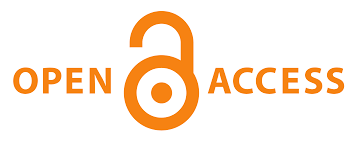Analyzing the Impacts of Implementing Cambridge Curriculum on Students’ English Academic Achievement
Main Article Content
Mailatun Nazizah
Khusnul Harsul Lisan
Berli Arta
The Cambridge Curriculum, which is typically implemented in international standard schools, is the primary focus of this investigation. Nevertheless, Assalafiyah Islamic Junior High School, a boarding school, has incorporated the Cambridge Curriculum into its educational program. The purpose of this study is to determine the impact of the implementation of the Cambridge Curriculum on Students' English Academic achievement in VIII Graders of Assalafiyah Islamic Junior High School Mlangi Yogyakarta. The academic performance of eighth-grade students was compared under two distinct curricula: the 2013 Curriculum and the Cambridge Curriculum, using a mixed-methods approach. The grades of 89 students in three classes (A, B, and C) were analyzed to collect quantitative data under both curricula. Further, interviews were conducted with 12 participants from the Islamic Junior High School in Mlangi, Yogyakarta, including 6 male students, 5 female students, and 1 teacher, for the qualitative analysis. The results of this study indicated that the application of the Cambridge Curriculum on Students' English Academic achievement of VIII graders had a very good impact. The students increased in terms of academic scores when learning using Cambridge Curriculum compared to the previous Curriculum. Besides, they were more enthusiastic in participating in the English lessons in class.
Abidin, D., Retnaningrum, E., Parinussa, J. D., Kuning, D. S., Manoppo, Y., & Kartika, I. M. (2023). Curriculum development in Indonesia from a historical perspective. Journal of Education Research, 4(1), 443–451. DOI: DOI: https://doi.org/10.37985/jer.v4i2.175
Afriana, A. (2017). A study on the application of Cambridge curriculum in EFL instruction at the fifth grade students of SD Zumrotus Salamah Tawangsari Tulungagung in academic year 2016/2017 (Undergraduate thesis, 2813133016). State Islamic Institute (IAIN) of Tulungagung.
Astri, A., Harjono, A., Jaelani, A. K., & Karma, I. N. (2021). Analisis Kesulitan Guru Dalam Penerapan Kurikulum 2013 Di Sekolah Dasar. Renjana Pendidikan Dasar, 1(3), 175–182. https://prospek.unram.ac.id/index.php/renjana/article/view/113
Bahri, S. (2017). Pengembangan Kurikulum Dasar Dan Tujuannya. Jurnal Ilmiah Islam Futura, 11(1), 15. DOI: https://doi.org/10.22373/jiif.v11i1.61
Bastian, I and Winardi, R., D., and Fatmawati, D. (2018). Metoda Wawancara. Metoda Pengumpulan dan Teknik Analisis Data
Elisabeth, M. (2014). Implementasi kurikulum internasional Cambridge dan dampaknya terhadap pengelolaan pembelajaran Biologi: Studi kasus Ddi Saint John’s Catholic School [Thesis]. Universitas Negeri Semarang. http://lib.unnes.ac.id/id/eprint/23076
Fajri, K. N. (2019). Proses Pengembangan Kurikulum. Islamika, 1(2), 35–48. DOI: https://doi.org/10.36088/islamika.v1i2.193
Fitriana, S., & Sutama. (2021). Pemecahan Masalah Pembelajaran Matematika Berorientasi Kurikulum Cambridge Di Era Pandemi Covid-19. Jurnal Lebesgue : Jurnal Ilmiah Pendidikan Matematika, Matematika Dan Statistika, 2(2), 244–252. DOI: https://doi.org/10.46306/lb.v2i2.43
Hasan, M., Milawati, Darodjat, Khairani, H., & Tahrim, T. (2021). Media Pembelajaran. In Tahta Media Group.
Holidazia, R., & Rodliyah, S. (2020). Strategi Siswa dalam Pembelajaran Kosa Kata Bahasa Inggris Students’ Strategies in English Vocabulary Learning. 20 (April), 111–120.
Huang, K. M. (2011). Motivating lessons: A classroom-oriented investigation of the effects of content-based instruction on EFL young learners’ motivated behaviours and classroom verbal interaction. System, 39(2), 186-201. https://www.sciencedirect.com/science/article/pii/S0346251X11000200
Islam, Z. N., & Fajaria, N. H. (2022). Cambridge curriculum implementation at SMP Madina Islamic School. Akademika: Jurnal Teknologi Pendidikan, 11(01), 101–112. https://doi.org/10.34005/akademika.v11i01.1932
Kadariah, K., Kusmaladewi, K., & Hasmiah, H. (2020). Faktor Kesulitan Guru Dalam Proses Belajar Mengajar Di Ditinjau Dari Pengunaan Kurikulum, Struktur Materi, Sarana Dan Prasarana, Dan Alokasi Waktu. JEKPEND: Jurnal Ekonomi dan Pendidikan, 3(2), 15. DOI: https://doi.org/10.26858/jekpend.v3i2.14410
Kurniasih, A., & Lisan, K. H. (2023). Developing English speaking materials for tenth grade students of conversation program at Madrasah Aliyah (MA) Ali Maksum. JETLEE: Journal of English Language Teaching, Linguistics, and Literature, 3(1), 31–39. DOI: https://doi.org/10.47766/jetlee.v3i1.1275
Keumala, Y. (2013). Implementation of Cambridge International General Certificate of secondary education curriculum in plant transport system topic in an international school [Thesis]. Universitas Pendidikan Indonesia.
Lisan, K. H., & Kholis, A. (2024). The Analysis of Kurikulum Operasional Madrasah as the Implementation of Merdeka Curriculum. JALL (Journal of Applied Linguistics and Literacy), 8(1), 12-25. DOI: http://dx.doi.org/10.25157/jall.v8i1.12589
Livingstone, K. A. (2019). The place of information and communication technologies in curriculum design and development. International Journal of Education and Development Using Information and Communication Technology, 15(4), 180–197.
Mahmudah, M., & Kholis, A. (2023). The implementation of an English bridging program adapting the Cambridge curriculum for primary school. Prominent, 6(2), 83–94. DOI: https://doi.org/10.24176/pro.v6i2.10185
Muzaedah, M., Muamaroh, M., Prastiwi, Y., & Sutopo, A. (2023). Exploring the Implementation of Cambridge Curriculum in Early Elementary English Education: A Case Study. VELES (Voices of English Language Education Society), 7(3), 587–598. DOI: https://doi.org/10.29408/veles.v7i3.24094
Nafisah, N. F. (2018). Implementasi Kurikulum Cambridge Di Sekolah Dasar Internasional Al Al-Abidin Surakarta Dan Sekolah Dasar Integral Walisongo Sragen. Profetika: Jurnal Studi Islam, 19(2), 154–162. DOI: https://doi.org/10.23917/profetika.v19i2.8122
Nur, M. D. (2021). Analisis Kurikulum 2013. Didaktik : Jurnal Ilmiah PGSD STKIP Subang, 7(02), 484–493. DOI: https://doi.org/10.36989/didaktik.v7i02.239
Qomariyah, D. N., & Khasanah, N. (2023). The application of Cambridge Curriculum in English as second language teaching learning at secondary school. Journal of Language Intelligence and Culture, 5(1), 1–8. DOI: https://jlic.uinkhas.ac.id/index.php/jlic/article/view/115
Rauf, M. B., Ayub, A., & Batool, B. (2022). Perceptions on the Single National Curriculum for English as a Second Language for Primary Grades. Voyage Journal of Educational Studies, 2(1), 34-43. https://vjes.voyageams.com/index.php/vjes/article/view/12
Widagsa, R. (2022). An EFL Teacher Perspective on Implementation of Dual Curriculum (Cambridge and Indonesian K13 National Curriculum) at Mutiara Persada School, Yogyakarta. Journal of English Language Teaching and English Linguistics, 7(1).
Simanjuntak, M. B. (2020). the Effects of Integration Between Kurikulum 2013 and Cambridge Curriculum in English (Study Case Taken From Saint Peter’S Junior High School). Journal of Advanced English Studies, 3(1), 50. DOI: https://doi.org/10.47354/jaes.v3i1.77
Simanjuntak, M. B., Suseno, M., Setiadi, S., Lustyantie, N., & Barus, I. R. G. R.G. (2022). Integration of Curricula (Curriculum 2013 and Cambridge Curriculum for Junior High School Level in Three Subjects) in Pandemic Situation. Ideas: Jurnal Pendidikan, Sosial, Dan Budaya, 8(1), 77. DOI: https://doi.org/10.32884/ideas.v8i1.615
Siyoto, S., & Ali, M. (2015). Dasar Metodologi Penelitian, 1–109.
Suhandi, A. M., & Robi’ah, F. (2022). Guru dan Tantangan Kurikulum Baru: Analisis Peran Guru dalam Kebijakan Kurikulum Baru. Jurnal Basicedu, 6(4), 5936–5945. https://doi.org/10.31004/basicedu.v6i4.3172
Suryani, D., & Widodo, W. (2019). Digital Learning Based Cambridge Curriculum on Science Learning At Smp Islam Al-Azhar 13 Surabaya. Pendidikan Sains, 7(2).
Syafaati, D., & Widodo, S. T. (2023). Implementasi kurikulum cambridge di SD Nasima Kota Semarang. Jurnal Profesi Keguruan, 9(1), 90–98. DOI: https://journal.unnes.ac.id/nju/index.php/jp




